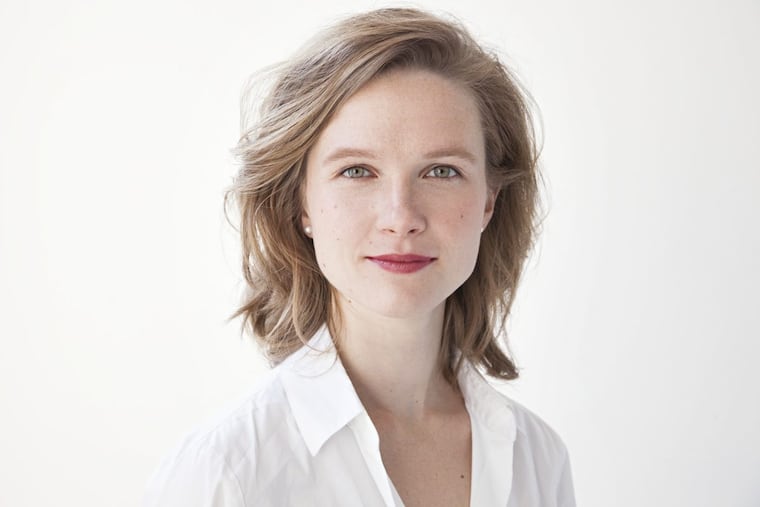Mirga Gražinyte-Tyla leads the Philadelphia Orchestra in Mahler
Pianist Menahem Pressler, age 94, joined the orchestra in Mozart.

Whatever else one felt in the Mozart Piano Concerto No. 23 played Friday afternoon in Verizon Hall, the mood turned decidedly poignant with the arrival of the second movement, and not just because of the Mozart itself. There was the orchestra solid and assured, a conductor lithe and youthful donned in flaming saffron, and the small, pale, elderly figure at the keyboard laboring over a job he has done for much of the past nine decades.
Menahem Pressler was the pianist in the concerto, and it would be wonderful to report that, at the age of 94, he was here to marry old-world wisdom with the vigor of youth. The conductor, Mirga Gražinytė-Tyla, newly named music director of the City of Birmingham Symphony Orchestra, was making her Philadelphia Orchestra debut with this concert, and perhaps there was in some small way something to it, this meeting of age diversity. Gražinytė-Tyla spent a moment on stage interviewing the pianist, who said that he had made his own debut with this orchestra about 70 years ago, when Eugene Ormandy was conductor.
He told the audience that Philadelphia has a winner not only in the Super Bowl, but also in its "champion all the time, the Philadelphia Orchestra." (Friday's concert was the first in the run of this Philadelphia Orchestra program; the Thursday night performance was canceled to make way for the Eagles victory parade and aftermath.)
The Mozart was a wise choice. With only seven wind players and light strings, the A Major, K. 488 concerto didn't give Pressler a lot of competition for his sound, which is modest. The pianist, known by many for his half-century as one-third of the Beaux Arts Trio, managed some charming turns of phrasing, speeding up here or taking time there. But it's hard to describe his technique as anything but brittle, and there were some worrisome moments. The trill at the end of the first-movement cadenza never got off the ground, and his playing in the third movement — careful and deliberate — fell well short of the kind of fluidity for which the piece asks.
The encores, though, had some real interpretive value. Chopin's Nocturne in C Sharp Minor was of erratic tempo, but in places he made it a grave beauty. In Debussy's Reverie, Pressler tapped a beautifully transparent sound.
He was fortunate to have a partner in the Mozart who rolled with the punches as deftly as Gražinytė-Tyla. In Mahler, though, she was a strong personality. At 31, the Lithuanian-born conductor is rail-thin, but with dramatic arm waves she seems to take up more space than she actually does. She imprinted her personality into Mahler's Symphony No. 4 in ways both grand and detailed, which is in itself not any easy task for a guest conductor. Were they interpretive ideas that revealed truths?
Her general approach sometimes approached brash, as in the first movement, where she rushed through one section for an emotional payoff that never was made clear. Juliette Kang, concertmistress for this program, helped to turn the second movement more demonic than usual, digging into her sound. Gražinytė-Tyla's tempos here grew a bit quirky.
But the conductor's ideas in the third and fourth movements made clear what's behind some of the industry chatter about her as a big talent. She brought a coherent and quite emotional story line to the third movement. Through pacing and connecting certain sections, she brought the music from its icy stillness to a fluid thaw, and then on to a great flash of light that was the climax. She captured the perfect calm of the fourth movement, where Janai Brugger's soprano expressed the idea of a heavenly arrival — both in text as well as through a voice of incredible clarity, richness, and warmth.
Additional performance Saturday at 8 p.m., Verizon Hall, Broad and Spruce Streets. Tickets are $10-$158. Information: 215-893-1999 or www.philorch.org.